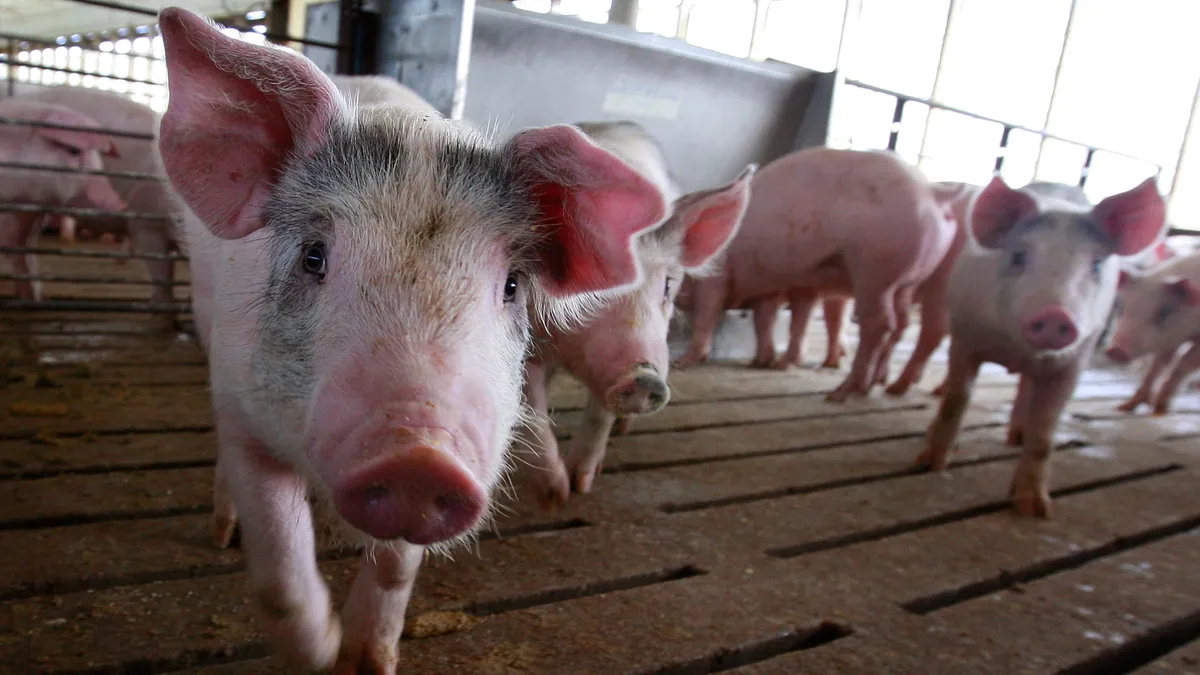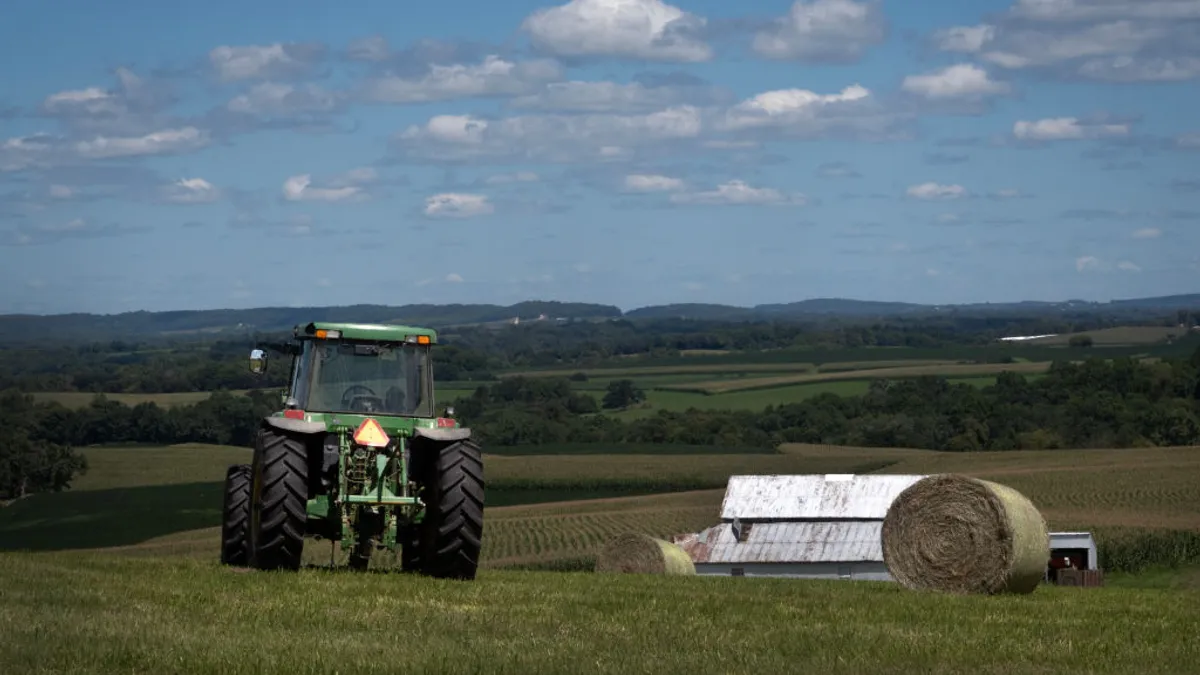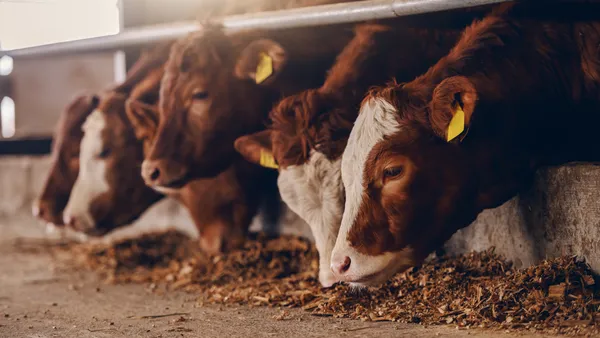Dive Brief:
- By fiscal year 2026, which ends in May 2026, Conagra aims to source 100% of its pork from farms that use “open pen gestation systems” — where pregnant pigs are kept in crates for no more than four to six weeks and then put in a pen with space to roam — the company’s communications manager Tim Wrona said in an email.
- The Humane Society said in a statement that it was “instrumental” in the policy decision, and that it will continue to hold the maker of Slim Jim and Duke’s smoked meats accountable to following through on the goal.
- Amid calls from animal rights groups and activist investors, some meat companies are signaling a commitment to improving animal welfare in their supply chains, despite the higher costs.
Dive Insight:
The commitment from Conagra signals a victory for activists wanting more ethical treatment for pigs, even if they would prefer to see it happen sooner.
A significant reason why many producers still use gestation crates for pigs is because of the high costs of replacing equipment. Conagra said it will phase in the use of “open pen gestation systems” over the coming years, aiming to source at least 30% by the end of its 2024 fiscal year and 60% by the end of its 2025 fiscal year.
As a shareholder of Conagra, the Humane Society is optimistic that other companies will follow Conagra’s lead, said Karla Dumas, The Humane Society’s vice president of farm animal protection.
“Like with what Conagra put together, our hope is that not only are companies going to follow through with their animal welfare policies, but that they set out tangible roadmaps for how they’re going to reach those policies, and we’re happy to work with them on that,” Dumas said.
The decision by Conagra comes as the U.S. Supreme Court is expected to decide in the coming weeks on the legality of California pork welfare law Proposition 12. The law — which 62% of the state voted to enact — requires producers to give 24 feet of movement and minimum floor space to breeding pigs. The decision will likely come over the next six weeks according to the Humane Society, and is also expected to impact producers’ decisions going forward.
The shift toward gestation systems which allow pigs more movement mimics the change that has taken place in cage-free eggs in recent years, Dumas said. It is picking up steam again, she said, as Conagra first announced it planned to tackle gestation crates issue in 2012. The Humane Society plans to continue to pressure Conagra to eliminate the crates entirely, not just after four to six weeks.
“There initially may have been some challenges when it came to the next steps for the industry, but we know that pork producers can absolutely do this and are shifting their facilities,” Dumas said.












